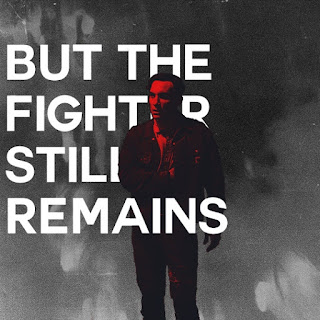The guy on the podcast was talking about the Jesus Revolution movie and the Jesus People movement in which it's set. He made a dramatic statement that I've heard before, but this time it hit me like a freight train:
• More than 80% of current pastors came to faith in Jesus during that move of God, even though many of them were not part of the Jesus People movement.
It hit me strong enough that I tapped Pause on the podcast to think about it. "This shouldn't be a surprise to you, Son; you were there," and he reminded me of some things.
And as I reflected on those days, Father reminded me of some things I hadn't paid attention to. For example, American culture was a mess. Sex was a dominant topic on people's mind (whether "free love" or advancing homosexuality or the sexes at war in the Women's Liberation movement). Jane Roe's lawsuit against Henry Wade for abortion was making it's way through the courts, destined for the Supreme Court. The political world was characterized by assassinations (two Kennedys & Martin Luther King), and the media had declared that God was dead. Riots filled campuses across the nation, hopelessness was rampant, and rebellion might have been the watchword for a generation.
"Does that sound familiar, Son?" and he reminded me of some of the headlines I've read recently.
But God.... It was into that mess that God stepped in. Holy Spirit began answering prayers in ways that church folk never expected and it blew up one tidy little Bible church after another, beginning with Chuck Smith and Calvary Chapel, but it went well beyond that. Before long, there were flocks of people getting baptized in oceans and lakes and rivers and apartment swimming pools.
Since there was never an overly-precise definition of what exactly was part of the Jesus People movement and what wasn't, I can get away with saying that I was part of that movement. In point of fact, I was only one of several minor leaders of a tiny little eddy of that movement in a remote corner of the country (a Bible study I was part of exploded from one person to a couple of hundred).
But I was part of it. And our little sparkle of light was only one of a magnificent firework display that Holy Spirit was setting off in our region.
There was a Young Life group that was blowing up, some of the earliest Christian musicians kept showing up at the school offering free concerts where stories of Jesus captured students' attention. Several local churches were exploding with hungry newcomers, and many music pastors were hastily learning to play guitar.
As I write this, I'm remembering, and I have the benefit of fifty years of reflection. I remember thinking, "How could God bring so much good into such a nasty, sin-filled culture?" But he did.
And as I drove across town, reminiscing, Father drew my attention to three facts:
1) The culture was full of sex and sin and rebellion and anything-but-God.
2) That was the climate that God chose to step in, and he stepped in first among the youth, among the "unreachable" generations.
3) His invasion changed the nation, for generations even, though a good deal of what he was doing was not actually visible. In fact, it was decades later that I learned that the entire student leadership of one school had come to faith during those days. They had been serving as missionaries and pastors for many years. Or that one cheerleader with a rebellious streak and a sullied reputation told how she was wrestled to the ground and forced against her will to "pray the prayer," but had been powerfully changed by God and had been walking with him for years.
I need to clarify: I am not prophesying. I'm observing.
I'm observing a generation obsessed by sex and rebellion and marked by hopelessness. I see governments stained by corruption, the legal system and the business world weighed down with attempts to make sin acceptable.
And I remember: But God.
He reminded me: It was into an environment like this that Jesus stepped up as Lord and the world shifted around him.
Two conflicting things are true:
▪️ If he did it once, he can do it again. In fact, in the Greek roots of the declaration, "The testimony of Jesus is the spirit of prophecy," is hidden the thought, the prayer, "Do it again, God!"
And at the same time,
▪️ I've observed that he seems to favor doing it again in a new way. He also said, "Behold, I do a new thing!" and I've never seen him do the same thing the same way he did it before.
Which means, I want to position my heart to recognize (and join in) the invasion he's carrying out in this generation, and while I loved the Jesus People movement, I do not expect to see another move quite like that one. I expect to see something new and different.
And I do Not plan to attend the conference and buy the books and watch them burn. Instead, I plan to blow on the embers until they flicker into flame, and then I plan to feed that little flame the best I can.
And then I plan to jump in with both feet.
And then I plan to jump in with both feet.

.jpg)


















